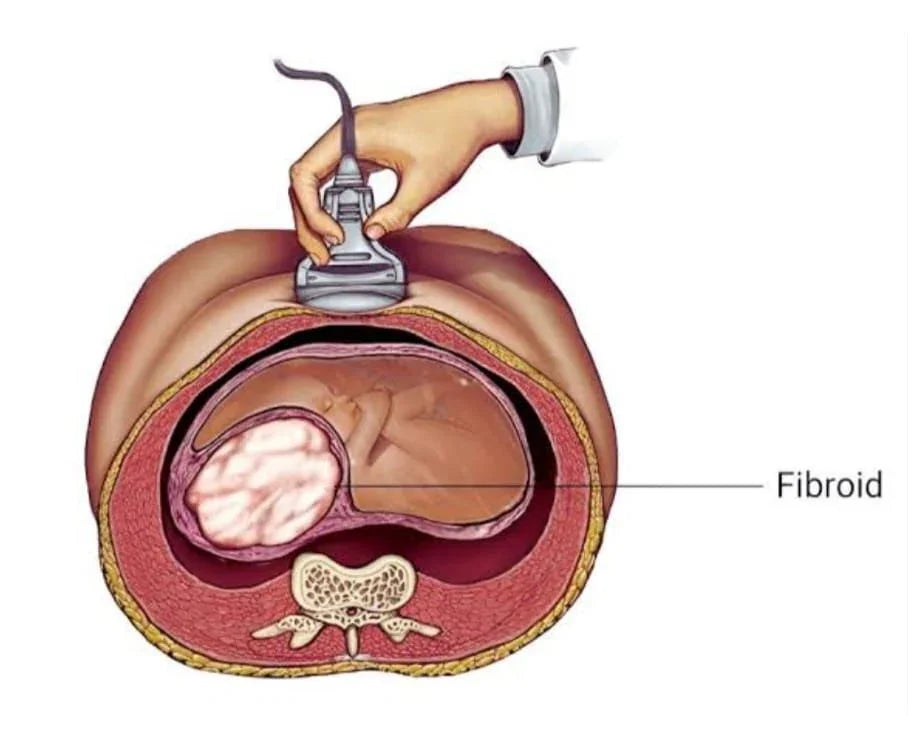How Fibroids Affect a Healthy Pregnancy
Fibroids during pregnancy are a common concern for many women. Fibroids are noncancerous growths of the uterus that can sometimes affect conception, pregnancy, and delivery. While most women with fibroids have healthy pregnancies, some may experience complications such as miscarriage, preterm labor, or the need for a C-section.
This blog will explain how fibroids affect pregnancy, possible risks, and what factors influence their impact.
What Are Fibroids in Pregnancy?
Fibroids, also called uterine fibroids or myomas, are growths of the muscle tissue of the uterus. They can vary in size and number. Some women may not even know they have fibroids until an ultrasound during pregnancy reveals them.
How Fibroids Might Affect Pregnancy
1. Increased Risk of Pregnancy Complications
Fibroids may increase the risk of:
-
Miscarriage – especially if fibroids distort the shape of the uterus.
-
Preterm labor or preterm birth – the uterus may contract earlier than normal.
-
Breech presentation – the baby may not settle into a head-down position.
2. Pain and Discomfort During Pregnancy
Pregnant women with fibroids may experience:
-
Abdominal or pelvic pain
-
Pressure and heaviness in the lower abdomen
-
Back pain due to enlarged fibroids
-
Cramping as the uterus stretches
3. Labor and Delivery Complications
-
Blocked birth canal: Fibroids near the cervix can obstruct natural delivery.
-
C-section delivery: Many women with large fibroids may require a cesarean section.
4. Restricted Fetal Growth
Large fibroids can limit space inside the womb, restricting fetal growth. This condition is called intrauterine growth restriction (IUGR).
5. Placental Problems
Fibroids may interfere with how the placenta attaches, causing:
-
Placental abruption – early separation of the placenta from the uterine wall.
-
Reduced oxygen and nutrients to the baby, which can affect fetal health.
Factors That Influence the Impact of Fibroids in Pregnancy
-
Size of Fibroids: Larger fibroids have higher chances of causing complications.
-
Location of Fibroids: Fibroids inside the uterine cavity or near the cervix pose greater risks.
-
Number of Fibroids: Multiple fibroids can create space issues in the uterus.
-
Individual Differences: Not every woman will have complications. Some women with fibroids have completely normal pregnancies.
Can You Have a Healthy Pregnancy With Fibroids?
Yes! Most women with fibroids during pregnancy deliver healthy babies and do not face serious issues. Regular prenatal check-ups, ultrasounds, and medical monitoring are key to managing risks.
Tips for Managing Fibroids During Pregnancy
-
Maintain regular doctor visits and follow medical advice.
-
Report any severe pain, bleeding, or contractions immediately.
-
Follow a healthy diet and lifestyle to support pregnancy.
-
Discuss delivery options (natural vs. C-section) with your doctor in advance.
Final Thoughts
While fibroids can sometimes cause pregnancy complications, not all fibroids lead to problems. With early detection, proper monitoring, and medical care, most women with fibroids enjoy safe pregnancies and deliver healthy babies.
If you’re pregnant and have fibroids, remember—you’re not alone, and your healthcare team can guide you toward the best possible outcome.j


